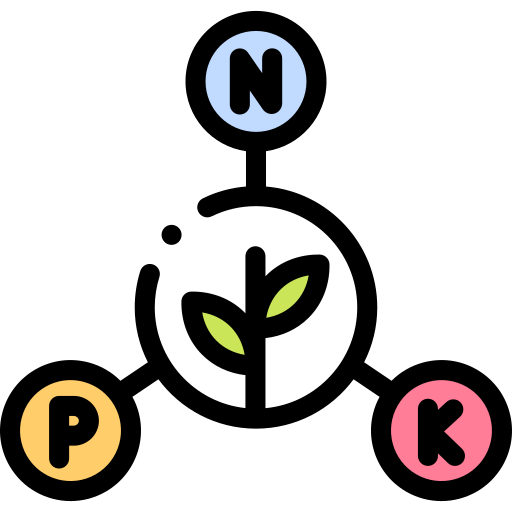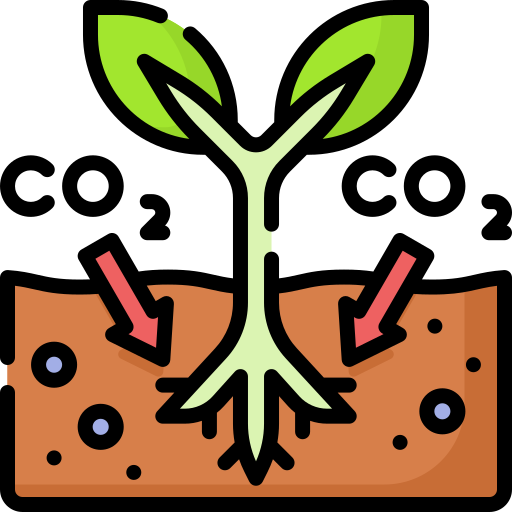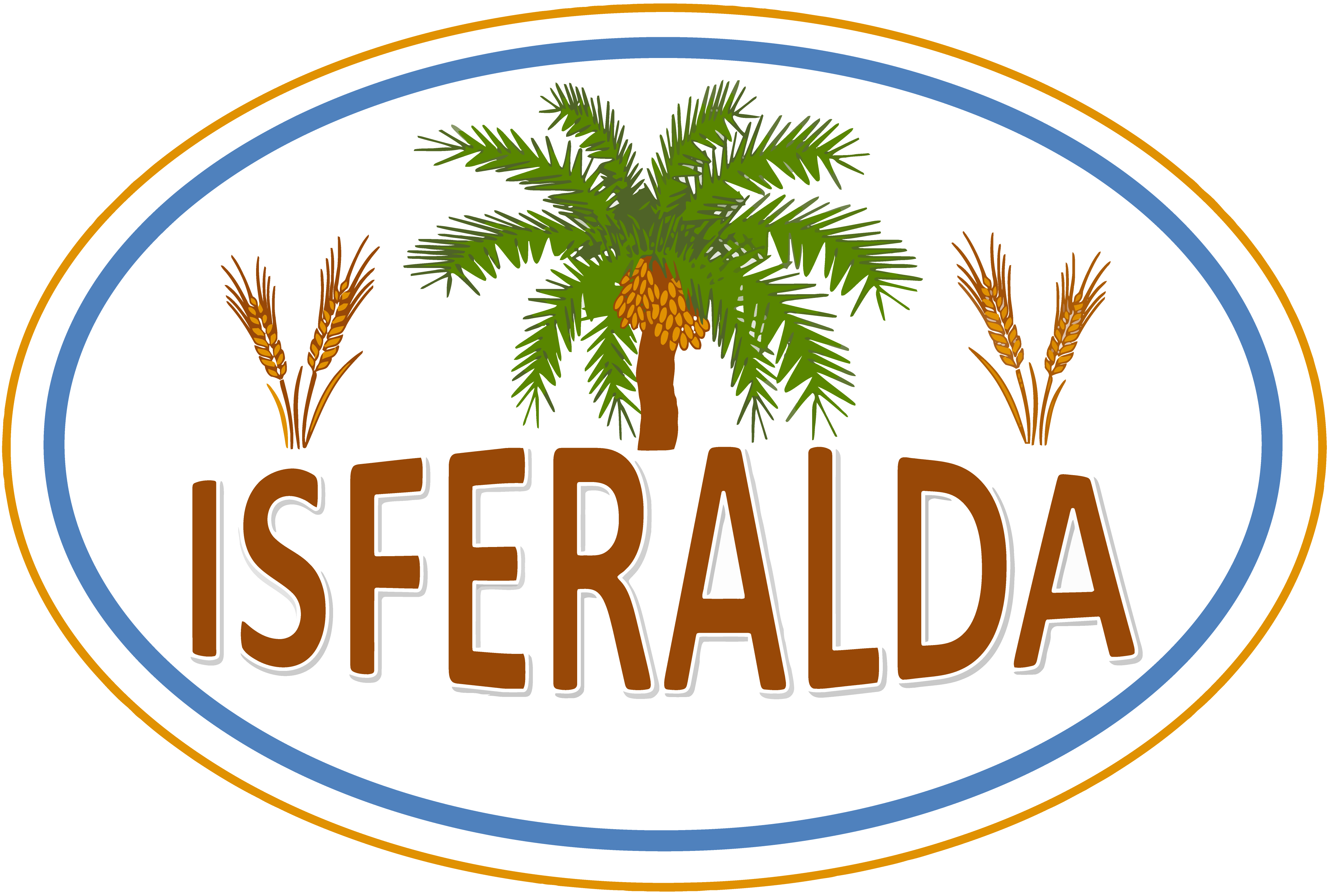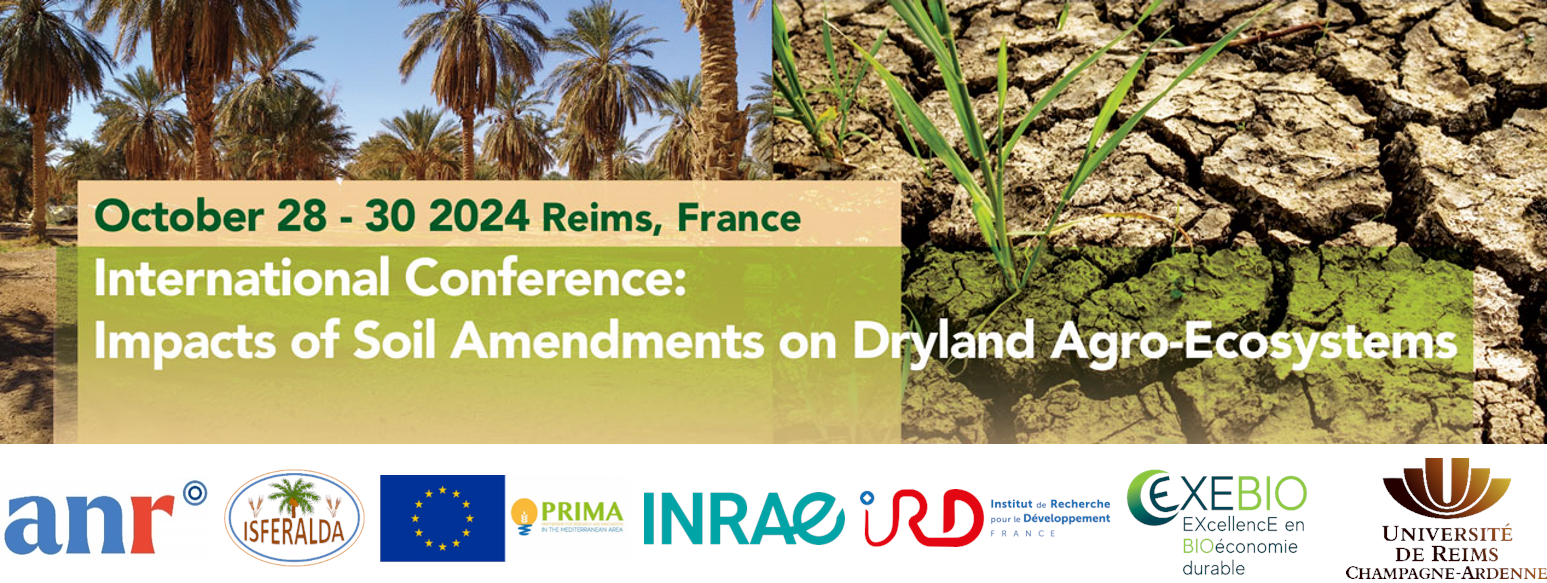Conference topics
ISADAE 2024 Topics
|
Optimizing crop productivity and ecosystem services in dryland agro-ecosystems
This session is welcoming contributions that focus on the impact of soil amendments on agricultural productivity, ecosystem services, and environmental sustainability in dryland agro-ecosystems. We encourage submissions related to sustainable farming practices, soil fertility, and biodiversity conservation. Additionally, we welcome contributions dealing with understanding impacts and barriers to the adoption of climate-smart agriculture in dryland areas, along with insights into how soil amendments can enhance crop stress management (drought, salinity, high temperature). Contributions exploring all agricultural aspects in water-limited ecosystems, such as oases and Mediterranean agroecosystems, are encouraged. Studies conducted in both field and controlled-environment settings (greenhouse, pot) are welcomed. Moreover, research on natural vegetation, horticultural, woody perennial, and underutilized crop species is invited.
Keywords: crop production, agroecology, saline agriculture, fertilization strategies, biochar, compost, organic amendments, nutrient availability, saline-sodic soil
|
|
|
|

|
|
Soil hydrological processes and water management practices
This session calls for original works focusing on water management in amended soils. Topics of interest include the impact of soil amendments on water infiltration, retention, and availability for plants, as well as the development of efficient irrigation techniques and water conservation strategies. This session also invites contributions that explore alterations in physical structure, chemical composition, and edaphic properties, providing insights into how these changes influence the hydrological functioning and productivity of soils. Research contributions that use new methods (non-invasive sensors, isotopic tracers) for monitoring changes in water characteristics of soils are also welcomed.
Keywords: irrigation management, drought, water holding capacity, water harvesting, evapotranspiration, water use efficiency
|
|
|
|

|
|
Linking soil biological processes and carbon/nutrient cycling to improve soil health
This session aims to address the impact of soil amendments on biological processes and carbon and nutrient cycling in dryland soils. We welcome contributions that investigate the dynamic interactions between soil organisms, plants, and nutrients facilitated by amendments, shedding light on strategies to enhance nutrient availability and cycling efficiency. Topics of interest include the influence of soil amendments on soil microbial communities, nutrient availability, and the promotion of beneficial interactions between plants and soil organisms.
Keywords: biogeochemical cycles, soil microbial ecology, soil organic matter, bioindicators, nitrogen fixation, nutrient use efficiency, soil enzyme activities, nutrient leaching
|
|
|
|

|
|
Degradation and conservation strategies of soils in dry areas
We encourage contributors that explore the causes of soil degradation and propose conservation measures, highlighting the role of soil amendments in restoring and preserving dryland ecosystems. This session will cover topics such as soil erosion, desertification, salinization, soil organic matter decline, and the use of soil amendments to improve soil health and reduce soil degradation. Contributions covering soil quality indicators and soil monitoring strategies are also encouraged.
Keywords: soil health indicators, soil mapping, soil desertification, soil fertility decline, soil pollutants, remote sensing, soil monitoring
|
|
|
|

|
|
Economical aspects of soil management and valorization of natural resources
This session is welcoming contributions that provide practical and economical aspects of managing soil amendments in dryland agroecosystems, including issues related to cost, availability, and quality. We encourage works exploring strategies for efficient utilization, valorization, and the benefits of adopting soil amendments. Topics include soil amendment production, application, and management, as well as the potential for valorizing waste materials as soil amendments. Contributions may also address the economic benefits of using soil amendments, such as increased crop yields, reduced input costs, and the promotion of the efficient use of natural resources.
Keywords: circular bioeconomy, biomass valorization, agricultural waste valorization, composting, organic fertilizer, sustainable practices, nutrient management, land use trajectory
|
|
|
|

|
|
Soils and drylands under climate change: impacts, adaptation and mitigation strategies
We invite interdisciplinary studies, including field, laboratory, and modeling research, that investigate the impact of climate change on dryland soils, with a particular focus on carbon storage and greenhouse gas emissions. Contributors are encouraged to explore how soil amendments can mitigate climate change effects by emphasizing sustainable practices that enhance carbon sequestration and minimize greenhouse gas emissions. Submissions from various spatial scales, ranging from local to global, are welcome, and meta-analyses of published data are also considered. Studies addressing climate risk management in drylands are of particular interest.
Keywords: greenhouse gas emissions, carbon sequestration, modeling, meta-analysis, climate variability, food security, long-term sustainability, climate resilience |
|
|
|

|
|
ISFERALDA special topic: Improving soil fertility in arid and semi-arid regions using local date palm residues
This special topic will contain contributions from the partners of the ISFERALDA project. This project aims to develop the use of date palm residues as organic amendment to improve soil properties and fertility. Based on traditional production methods such as composting and pyrolysis, the project focuses on refining processes and improving the quality and suitability of products for local plant needs and soil properties. The project primarily focuses on the impact of organic amendments on oasis agro-ecosystems.
This project has received funding from the European Union’s PRIMA research and innovation program.

Keywords: date palm, organic amendments, compost, biochar, crop residues, biomass valorisation, oasis agro-ecosystems
|
|
|
|

|
|


